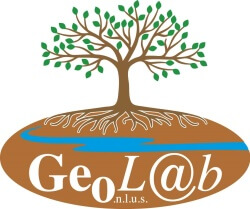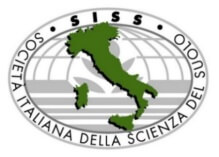Soil microbial activity in hydromorphic-subaqueous ecosystems: processes and functional biodiveristy
DOI:
https://doi.org/10.6092/issn.2281-4485/5796Keywords:
Sulfiwassent, Psammowassent, Psammaquent, soil microbial activityAbstract
The hydromorphic and subaqueous soils have largely been overlooked on their pedogenic concepts or in soil C accounting studies considering their phisico-chemical properties. Conversely, little attention has been paid to the microbial activity playing a key role in regulating the biogeochemical cycle of elements. The aim of the study was to evaluate biological properties such as enzyme activities and the functional diversity of soil microbial population as bio- indicators, sensitive to processes affected by the water shallow. Eight soil profiles were opened along two transects: 1) a-a’ North and 2) b-b' South, in a dune ecosystem of the Adriatic coast, Ravenna (Italy). The soil chemical and biochemical properties were determined. In particular, soil enzyme activities and soil induced respiration were measured using the microplates technique in order to assess the microbial functional diversity. The soil biochemical properties such as the potential enzyme activities and microbial induced respiration, as well as microbial functional diversity were sensitive indicators to study hydromorphic and subaqueous soils. A general reduction of hydrolytic enzyme activities was observed in subaqueous soil with respect to hydromorphic one. Moreover, the endopedon of subaqueous soils showed a lower microbial functional diversity than hydromorphic one. In this study the ratio of enzyme activities involved in C to S cycles (SEIC/Aryl) as well as the C:S ratio showed a marked reduction in the subaqueous with respect to hydromorphic soils. In conclusion, in a coastal area the C and S biogeochemical cycles, in the hydromorphic and subaqueous soils, may depend on freshwater and saltwater interface equilibrium.
References
ANTONELLINI M., MOLLEMA P., GIAMBASTIANI B.M.S., BISHOP K., CARUSO L., MISCHIO A., PELLEGRINI L., SABIA M., ULAZZI E., GABBIANELLI G. (2008) Salt water intrusion in the coastal acquifer of the southern Po Plain, Italy Hydrogeology Journal 16:1541–1556
BUSCAROLI, A., GHERARDI, M., VIANELLO, G., VITTORI ANTISARI, L., ZANNONI, D. (2009) Soil survey and classification in a complex territorial system: Ravenna (Italy). EQA Int. Journal of Envir. Qu. 3:115–128.
BENDING G. D., TURNER M. K., JONES J. E. (2002) Interactions between crop residue and soil organic matter quality and the functional diversity of soil microbial communities 34:1073–1082.
CAMPBELL C.D., CHAPMAN S.J., CAMERON C.M., DAVIDSON M.S., POTTS J.M. (2003) A rapid microtiter plate method to measure carbon dioxide evolved from carbon amendments so as to determine the physiological profiles of soil microbial communities by using whole soil. Applied & Environmental Microbiology, 69(6):3593-3599.
DEMAS G. P., RABENHORST M. C., STEVENSON J. C. (1996) Subaqueous soils: A pedological approach to the study of shallow-water habitats. Estuaries 19(2):229-237.
DEMAS G. P., RABENHORST M. C. (2001) Factors of subaqueous soil formation: a system of quantitative pedology for submersed environments. Geoderma, 102(3–4): 189–204. DOI org/10.1016/S0016-7061(00)00111-7.
KIRWAN M.L.. MEGONIGAL J. P. (2012) Tidal wetland stability in the face of human impacts and sea-level rise. Nature 504:53-60.
KLEIDON A., ZEHE E., LIN H. (2012) Thermodynamic Limits of the Critical Zone and their Relevance to Hydropedology. In: Hydropedology.Synergistic Integration of Soil Science and Hydrology (Lin, H. Ed) Elsevier pp. 243–281.
LIESACK W., SCHNELL S., REVSBECH N.P. (2000) Microbiology of flooded rice paddies. FEMS, Microbiology Reviews 24:625–645.
MARINARI S., CARBONE S., VITTORI ANTISARI L., GREGO S., VIANELLO G. (2012) Microbial activity and functional diversity in Psamment soils in a forested coastal dune-swale system. Geoderma 173–174:249–257.
MARX M., WOOD M., JARVIS S. C. (2001) A microplate fluorimetric assay for the study of enzyme diversity in soils 33:1633–1640.
TEATINI P., FERRONATO M., GAMBOLATI G., BRETONI W., GONNELLA M. (2005) A century of land subsi-dence in Ravenna, Italy. Environmental Geology 47:831–846.
Downloads
Published
How to Cite
Issue
Section
License
Copyright (c) 2015 Ruxandra Papp, Livia Vittori Antisari, Gilmo Vianello, Rosit Marabottini, Sara Marinari
Copyrights and publishing rights of all the texts on this journal belong to the respective authors without restrictions.
Articles published since 2020 are licensed under a Creative Commons Attribution 4.0 International License:
Previous articles are licensed under a Creative Commons Attribution-NonCommercial 3.0 Unported License:











